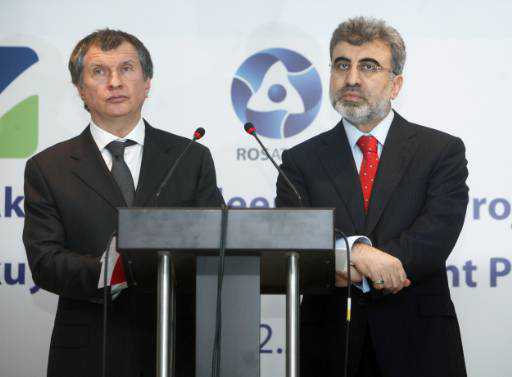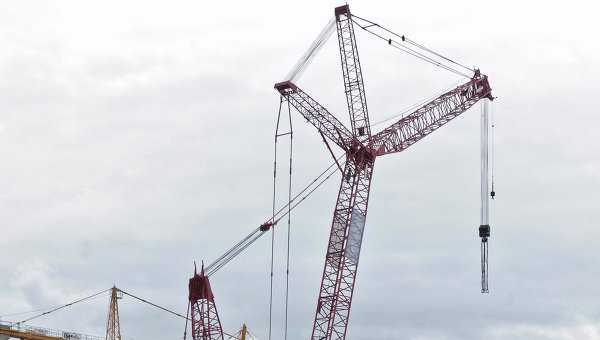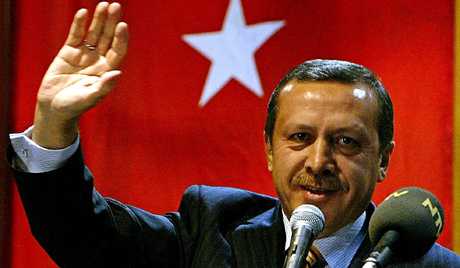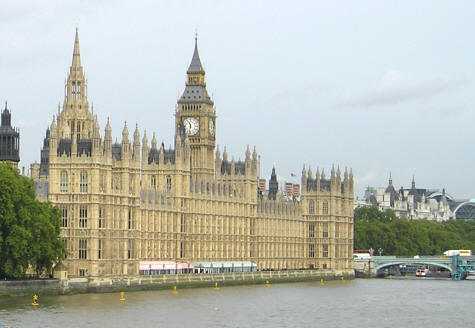On a question about nuclear waste disposal, Lokshin said that nuclear waste would be returned to Russia to be buried.
Wednesday, 15 December 2010 16:42

Turkey’s first nuclear power plant, planned to be built by Russian state nuclear company on the southern coast of the country, would cost around $20 billion, a Russian official said on Wednesday.
In May, Turkey and Russia signed a deal for construction of Turkey’s first nuclear power plant in Akkuyu, a small town on the Mediterranean coast.
Alexander Lokshin from ROSATOM, Russia’s state-owned atomic power corporation, appeared at a press conference in Istanbul to give information about Akkuyu nuclear power plant process.
Lokshin said that Akkuyu site would be licensed by the end of 2011.
“We have one year ahead for applications,” Lokshin said, however, he added that it could take a little bit more than a year to complete legal procedures for licensing.
Earlier this week, Russian Ambassador to Turkey Vladimir Ivanovsky said that Russian company was likely to start building the Akkuyu nuclear power plant in 2013 and the
first reactor was planned to generate electricty in 2018.
Turkish state-owned electricity corporation has guaranteed to buy a fixed amount of the plant’s output over the first 15 years starting from initial commercial operation at a reported price of 12.35 US cents per kWh, with the rest of the electricity to be sold on the open market by the project company.
Lokshin said it was not an expensive price considering a fixed period of nearly 23 years from now.
In the meantime, Russia’s Deputy Prime Minister Igor Sechin has arrived in Turkey earlier in the day to meet Turkish Energy Minister Taner Yildiz. Sechin and Yildiz are expected to discuss details of works aimed at setting up a project company, a move to push the button for actual launch of the nuclear power plant project.
Turkey is also in talks with Japan for construction of another nuclear plant on the north coast of the country. Turkey started talks with Japan last month after a failure of negotiations with South Korea.
Russia will build four 1,200 megawatt units on Akkuyu site. Lokshin said Russia’s nuclear technology was one of the best in tho world. He said technology transfer could be negotiated with Turkey in case of a Turkish request.
Lokshin ruled out any concerns about Russian technology when asked about a public apprehension in Turkey after the Chernobyl disaster in 1986, saying that reactors to be used at Akkuyu were “totally different” from Chernobyl reactors.
He said Russian company understands “prejudices” and public concerns and that such doubts were caused by public unawareness which could be eliminated by the help of awaraness-raising campaigns.
On a question about nuclear waste disposal, Lokshin said that nuclear waste would be returned to Russia to be buried.
AA





